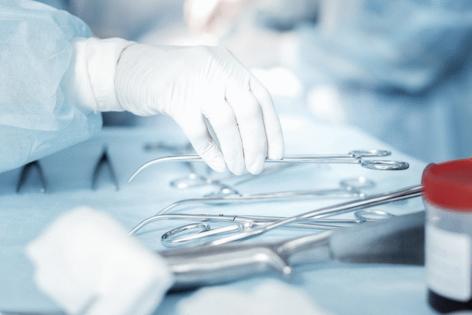Ten doctors on FDA panel reviewing Abbott heart device had financial ties with company
Published in News & Features
When the FDA recently convened a committee of advisers to assess a cardiac device made by Abbott, the agency didn’t disclose that most of them had received payments from the company or conducted research it had funded — information readily available in a federal database.
One member of the FDA advisory committee was linked to hundreds of payments from Abbott totaling almost $200,000, according to a database maintained by the Department of Health and Human Services. Another was connected to 100 payments totaling about $100,000 and conducted research supported by about $50,000 from Abbott. A third member of the committee worked on research supported by more than $180,000 from the company.
The government database, called “Open Payments,” records financial relationships between doctors and certain other health care providers and the makers of drugs and medical devices. KFF Health News found records of Abbott payments associated with 10 of the 14 voting members of the FDA advisory panel, which was weighing clinical evidence for a heart device called TriClip G4 System. The money, paid from 2016 through 2022 — the most recent year for which the database shows payments — adds up to about $650,000.
The panel voted almost unanimously that the benefits of the device outweigh its risks. Abbott announced on April 2 that the FDA had approved TriClip, which is designed to treat leakage from the heart’s tricuspid valve.
The Abbott payments illustrate the reach of medical industry money and the limits of transparency at the FDA. They also shed light on how the agency weighs relationships between people who serve on its advisory panels and the makers of drugs and medical devices that those committees review as part of the regulatory approval process.
The payments do not reflect wrongdoing on the part of the agency, its outside experts, or the device manufacturer. The database does not show that any of the payments were related directly to the TriClip device.
But some familiar with the process, including people who have served on FDA advisory committees, said the payments should have been disclosed at the Feb. 13 meeting — if not as a regulatory requirement, then in the interest of transparency, because the money might call into question committee members’ objectivity.
“This is a problem,” Joel Perlmutter, a former FDA advisory committee member and a professor of neurology at Washington University School of Medicine in St. Louis, said by email. “They should or must disclose this due to bias.”
The Open Payments database records several kinds of payments from drug and device makers. One category, called “associated research funding,” supports research in which a physician is named a principal investigator in the database. Another category, called “general payments,” includes consulting fees, travel expenses and meals connected to physicians in the database. The money can flow from manufacturers to third parties, such as hospitals, universities, or other corporate entities, but the database explicitly connects doctors by name to the payments.
At the public meeting to consider the TriClip device, an FDA official announced that committee members had been screened for potential financial conflicts of interest and found in compliance with government requirements.
...continued
©2024 KFF Health News. Distributed by Tribune Content Agency, LLC.







Comments